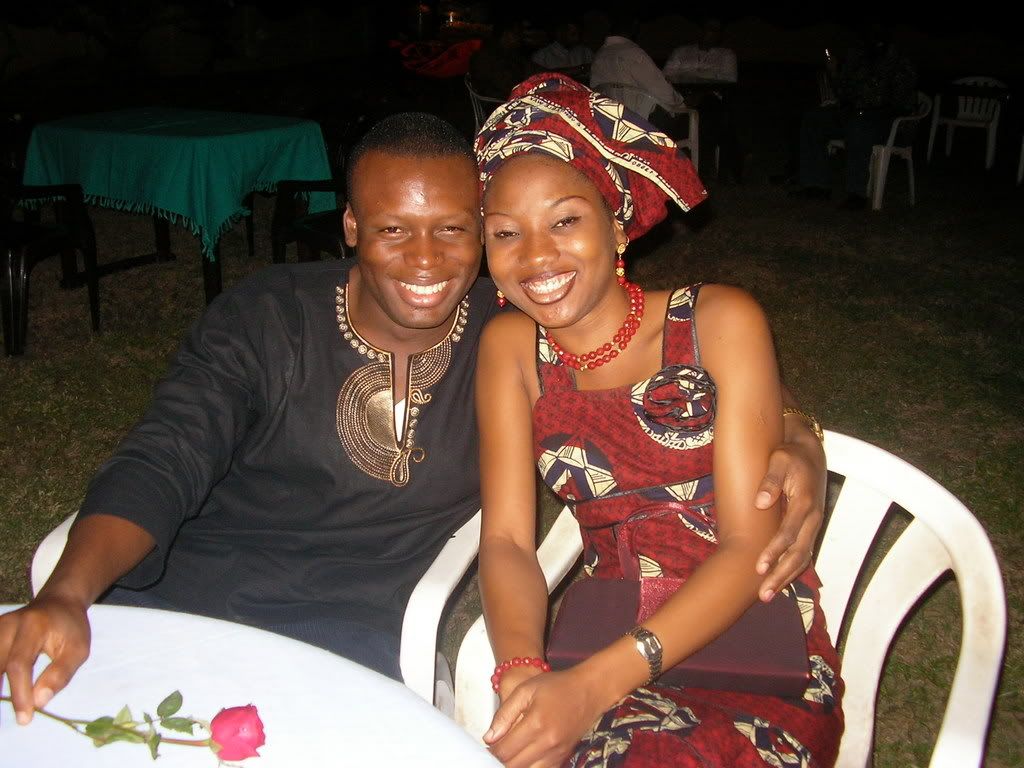Wednesday, January 11, 2012
Recent events have provided quite a harrowing experience for Nigerians. Following bomb blasts in Abuja and other places in the North, and the reprisal attack in Delta State, there has been much uncertainty and apprehension. For the families of those who lost their lives, it was a difficult Christmas.
For many, religious beliefs until now had not been matters of life and death; we may have experienced trials and tribulations in the course of practicing our faith, but nothing as dramatic or final as martyrdom. Few of us until recently have been at risk of any physical harm. But even churches in the South are waking up to the possibility of bodily harm in the course of worship. Many avoided watch night services on December 31, ostensibly heeding warnings, coming mainly through text messages, about the "mother of all bombings" that might occur that night.
In many parts of Northern Nigeria, this is not new. Christians have long endured repression, violence and even martyrdom. Terrorism and fanaticism have unleashed much suffering upon them for no crime other than their faith. The Christmas day bombing of St Theresa Church near Abuja, that killed scores of worshippers, is a reminder of the insecurity that haunts Christians. How should Christians live in a climate of intense hate and strife? What should be the nature of our testimony and witness in this matter?
First, we must acknowledge that persecution is part of the Christian heritage. Jesus exhorted his disciples to expect persecution. Of the twelve apostles who led the First Century Church, only John, author of the Book of Revelation, was not martyred. Indeed, the history of the early Church was basically cycles of persecution followed by brief respite and spurts of growth. Jesus specifically asked his disciples to expect persecution from zealots, who would believe that by oppressing Christians they were serving God. So the mobs of misguided fanatics, who today burn churches and kill Christians, are a stark fulfillment of a two thousand year old prophecy.
Regardless of how such conflicts are shaped by poverty and collateral factors - social, economic and political - the fact remains that Christians as a group have often been targeted because they are Christians. Sadly, governments at the state and local level have failed to protect Christians and their property from terrorism and have failed to bring the perpetrators of such violence to justice. This has led to a mounting loss of faith in the ability of the State to protect its citizens from harm by criminal fanatics.
In the context of such a history, there is a danger that a Christian extremism and militant aggression, as demonstrated in the Delta State reprisal bomb attack, will be fabricated to counter Islamic extremism. We face the spectre of a generation which has been raised in an atmosphere of rabid sectarian hatred fashioning a reciprocal Christian terrorism to prove that no religion has a monopoly of violence. Already, it is evident in some of the pastoral rhetoric in the wake of recent bouts of violence, that a theology of vengeance is taking root. Such is the self -help solution of a wounded people striking back against their serial assailants.
But this response of "an eye for an eye" and "a tooth for a tooth" is inconsistent with authentic biblical faith, and ultimately leads to war and devastation on a horrific scale. Christianity was forged in the furnace of persecution by despotic Roman and envious religious elites, but nowhere in the Christian doctrine, as espoused by the apostolic generation who lived under the shadow of brutal oppression, do we find any recourse to reciprocal violence. The early Church saw beyond their human assailants and glimpsed the dark spiritual forces - the principalities and powers at work. Today, we too must look past the violent mobs and discern in their outrage, the spiritual forces of hate and strife.
Without prejudice to the right of a people to self-defence, reciprocal Christian extremism is no remedy for Islamic terrorism. "The weapons of our warfare are not carnal"; therefore, we must reach into the treasury of our faith for the appropriate weapons with which to engage the enemy.
Reverend Martin Luther King, who carried out his ministry in an atmosphere of racist hatred at a time when African-American were routinely lynched and their churches fire-bombed by terrorists, offers insights on how to respond to persecution. He urged Christians to actualize Jesus' invocation that we love our enemies. "Hate for hate", King wrote, "only intensifies the existence of hate and evil in the universe". The idea of loving our enemies ranks among the more understated aspects of our faith and practice today. It is not only virtually ignored in Nigerian Christianity, but there exists a pattern of prayer that advocates the death of such enemies; commanding them to "roast and be burned up" in some nebulous Holy Ghost fire. But loving our enemies is a concept that we must actualize today. It is a quality that makes our faith redemptive.
The moment we succumb to the temptation to invent our own brand of terrorism, we have lost the spiritual battle. Martin Luther King argued that "someone must have religion enough and morality enough" to "cut off the chain of hate" and "inject within the very structure of the universe that strong and powerful element of love". Christianity is proactive and creative, not reactive. This is a time for the love of Christ to pierce the darkness of hate. This is a time to offer a drink of water to Ishmael who cries out with thirst and rejection in the wilderness.
The time in which we live places an even greater demand on the Christian witness; it is a time crying out for activation of the ministry of reconciliation and realization of our calling as peacemakers. We need prophetic voices that can articulate the means of entrenching justice without demonizing people of other faiths. Acts of forgiveness, healing and repentance are required to heal communities cursed by strife and hate. This is the way we will begin to answer the age old question for all seasons: What would Jesus do?
Tuesday, January 3, 2012
Subscribe to:
Comments (Atom)









